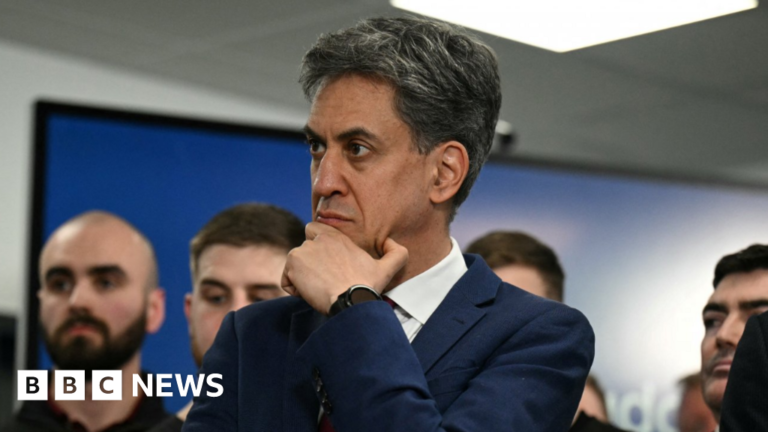Miliband Refuses to Say Whether He Personally Backs Heathrow Expansion
In a recent interview, former Labour leader Ed Miliband stirred up public interest by declining to clarify his personal stance on Heathrow Airport’s contentious expansion plans. This situation reignites discussions regarding air traffic congestion, environmental concerns, and the future of the aviation industry in the UK. The proposed third runway at Heathrow has long been a flashpoint in national discourse, prompting questions about government priorities and the potential impact on climate change.

Heathrow Airport is currently the busiest airport in Europe and the seventh busiest in the world, according to data from the Airports Council International (ACI). It handled over 80 million passengers in 2019 alone, highlighting its crucial role in connecting the UK to the rest of the globe. However, this expansion is not without its controversies. Climate action advocates argue that increasing air traffic contradicts the UK’s commitment to reducing carbon emissions under international agreements, such as the Paris Accord.
Public opinion on Heathrow’s expansion is divided. According to a 2022 YouGov survey, 51% of the public supported building a third runway, while 36% opposed it. Miliband’s refusal to commit may reflect an awareness of these divided opinions, particularly as the Labour Party seeks to unify its base ahead of future elections. Many party members are staunchly against any plans that would jeopardize the UK’s commitment to net-zero carbon emissions by 2050.

The economic implications of expanding Heathrow also play a significant role in the debate. Proponents argue that a third runway would create tens of thousands of jobs and generate billions in economic benefits. According to a 2019 report by the Airports Commission, the proposed expansion could add £61 billion to the UK economy and create approximately 180,000 jobs in the surrounding areas. The figures suggest substantial economic growth, yet many ask whether this growth can justify the environmental costs.
Critics, however, highlight the potential for increased noise pollution, air quality degradation, and the displacement of local communities. The environmental group Friends of the Earth has pointed out that air traffic is responsible for over 6% of the UK’s greenhouse gas emissions, raising alarms about the viability of expanding a facility that significantly contributes to such pollution.

Heathrow’s expansion plans have been met with multiple legal battles as green activists and locals seek to halt the development. In 2020, the Supreme Court ruled in favor of the government, permitting the expansion to proceed, but opponents continue to challenge this decision. The latest legal challenges not only question the environmental impact assessments but also scrutinize the government’s overall commitment to climate targets.
The political landscape surrounding Heathrow expansion has changed over time as well. In 2015, Miliband’s party leader, the late Jeremy Corbyn, was vocally opposed to the third runway, echoing sentiments shared by numerous local London constituencies. Miliband’s hesitance to express a definitive viewpoint could signify a shift toward a more centrist approach in a party that has been volatile regarding major environmental decisions.
As challenges surrounding climate change and economic recovery continue to gather momentum, Miliband’s silence on Heathrow’s expansion points to a broader issue: how to balance economic growth with environmental responsibility. The Labour Party’s approach will likely affect its public perception, especially as elections approach, making it imperative for leaders like Miliband to clarify their position.
The debate over Heathrow expansion underscores a quintessential dilemma facing contemporary politics: can we afford to sideline environmental sustainability for economic development? With the UK aiming for ambitious climate targets, the answer remains as elusive as Miliband’s personal opinion. As public pressure mounts, decision-makers will need to tread carefully between maintaining economic viability and fulfilling their environmental obligations.
![]()
In conclusion, Ed Miliband’s refusal to take a clear stand on the Heathrow expansion serves as a microcosm for the broader challenges facing policymakers in balancing growth with sustainability. The implications of this controversy will echo well beyond the airport’s runways, potentially shaping future political strategies and public sentiments regarding climate change initiatives in the UK. Given the critical nature of these discussions, it seems unlikely that Miliband’s silence will last indefinitely as public scrutiny intensifies.


